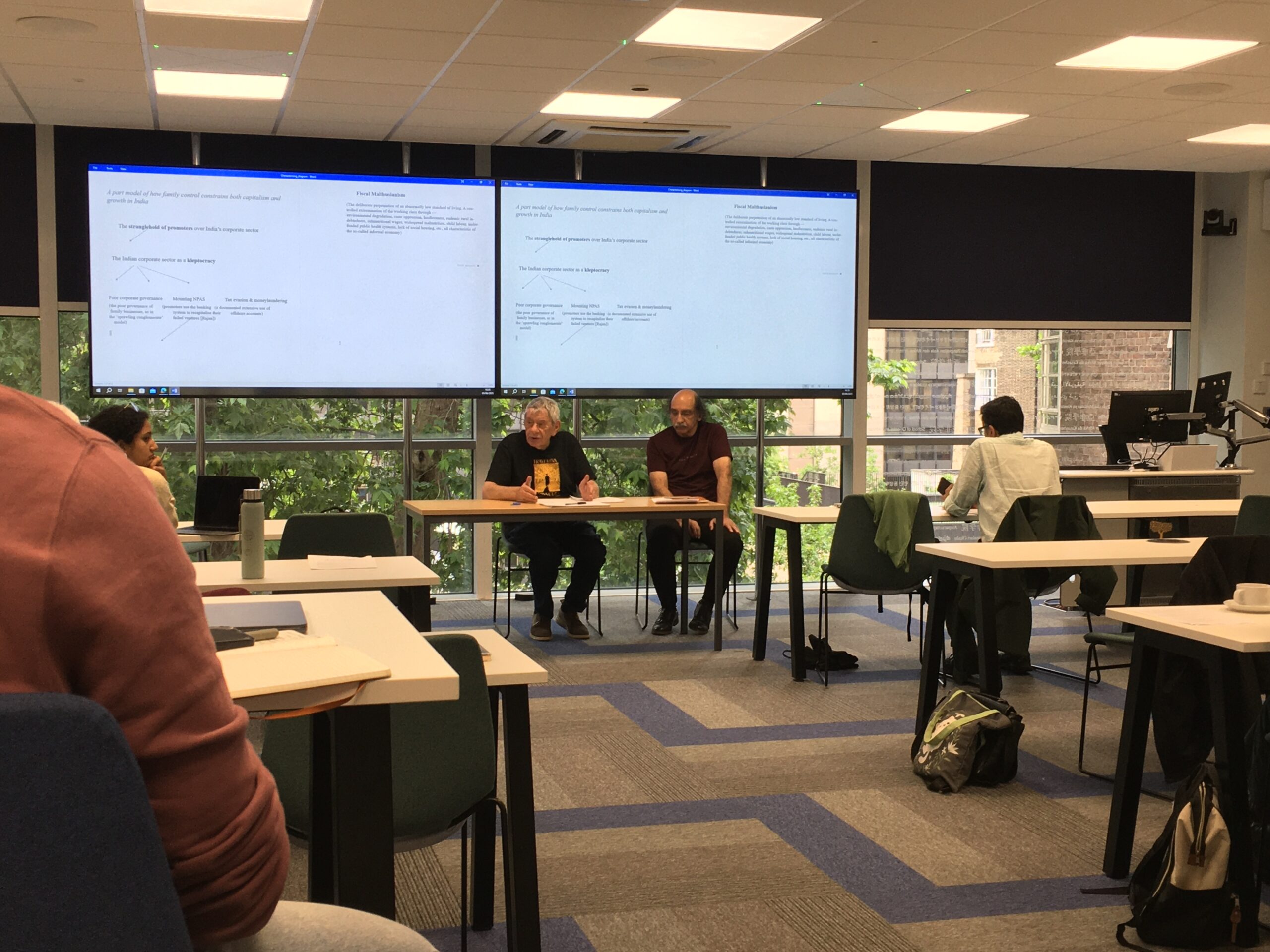Workshop on Labour, Informal Economy, and Structural Transformation under Post-Colonial Capitalism

Economic development in the Global South has traditionally been understood as a structural transformation: the shift of economic activities and employment from traditional, low-productivity agriculture to modern industrial and service sectors. This transition is presumed to be driven by growth in modern sectors. Yet, despite economic growth and declining dependence on agriculture, many transitioning workers remain unable to secure productive and stable employment in these sectors. Instead, a significant portion of the workforce is absorbed into informal economies—small, family-based petty enterprises aimed at subsistence or precarious, short-term wage contracts within the modern sectors.
The persistence of the informal economy across the Global South—and the growing informalisation even within structurally transformed economies in the Global North—raises pressing questions about the capacity of contemporary, highly-globalised growth processes to provide secure, sustainable livelihoods for the majority. It challenges conventional assumptions about structural transformation and raises critical concerns about the nature of capitalism in the Global South. Can a complete structural transformation, as envisioned in classical economic theories, truly be achieved in these contexts?
Under these conditions, it is essential to view the informal economy and the exclusion of labour not as anomalies but as intrinsic to the very nature of the capitalist expansion process in post-colonial economies. The informal economy serves as a lens to assess the stunting of the classically expected transformation processes and to explore the alternative dynamics of capitalism’s unfolding in the Global South. Moving beyond a legalistic or regulatory understanding of informality, this workshop adopts the perspective of critical scholars, notably Kalyan Sanyal (2007), who define informal firms through their “need-based” orientation and their organisation of production and labour processes.
With this foundation, the workshop aimed to:
- Centrally position labour dynamics and informality in debates on structural transformation and industrial policy, moving beyond assumptions that high growth alone resolves these issues.
- Revisit and refresh debates on the informal economy and labour exclusion that view Global South economies through the lens of stunted transformation and incomplete capitalist transitions.
This workshop was a closed door convening organised by the New Political Economy Initiative and hosted the following scholars:
Participants
- Alessandra Mezzadri, SOAS University of London
- Anush Kapadia, New Political Economy Initiative, IIT Bombay
- Barbara Harriss-White, University of Oxford
- Gabriel Ulyssea, University College London
- Ihsaan Bassier, University of Surrey
- Jairus Banaji, SOAS University of London
- Jayaseelan Raj, King’s College London
- Jens Lerche, SOAS University of London
- Kate Meagher, London School of Economics and Political Science
- Maitreesh Ghatak, London School of Economics and Political Science
- Henry Bernstein, SOAS University of London
- Rosa Abraham, Azim Premji University
- Sonal Raghuvanshi, New Political Economy Initiative, IIT Bombay
- Srinivasan Iyer, New Political Economy Initiative, IIT Bombay
- Srishti Yadav, Azim Premji University
- Surbhi Kesar, SOAS University of London (Co-convenor)
- Vinay Gidwani, University of Minnesota